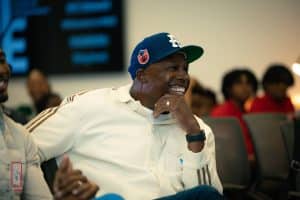In a world where poverty, much like racism, is a man-made construct, it’s disheartening that individuals are born into a cycle of financial and social deprivation. The insidious truth is that some profit from this inequality, leaving entire communities trapped in the perpetual cycle of scarcity.
Enter the LEAD Center For Youth, a beacon of hope operating in the heart of Atlanta, Georgia. This 501(c)3 nonprofit organization stands as a silver bullet against the perpetualism of poverty. The mission? To empower an at-risk generation through the transformative power of sports, specifically baseball and tennis.
Our focus is on Black youth, teaching them to overcome the three curveballs that threaten their success: crime, poverty, and racism. Through sports-based youth development, we inspire and equip young minds with the tools they need to navigate life’s challenges successfully.
Our year-round experience, driven by the Pathway2Empowerment programming, revolves around four pillars: athletics, academics, civic engagement, and commerce. We believe that by nurturing skills in these areas, we can break the chains that bind the youth to the cycle of poverty.
In a city like Atlanta, touted as “world-class” for some but a living hell for others, the fight against income inequality is urgent. Shockingly, Atlanta ranks number one for income inequality in America based on race. Born into poverty here? You face a mere 4% chance of breaking free.
It’s time to rewrite the narrative, providing a fighting chance for every individual to win at the game of life. The LEAD Center For Youth is more than an organization; it’s a movement to break the perpetualism of poverty, one empowered life at a time. Join us in creating a brighter, more equitable future for Atlanta. #BreakTheCycle #EmpowerAtlanta #LEADATL #TheSolution




 As we head into February, I find it fitting to engage in a more formal conversation about the evolution of my training regimen and the significance of practicing under pressure.
As we head into February, I find it fitting to engage in a more formal conversation about the evolution of my training regimen and the significance of practicing under pressure.